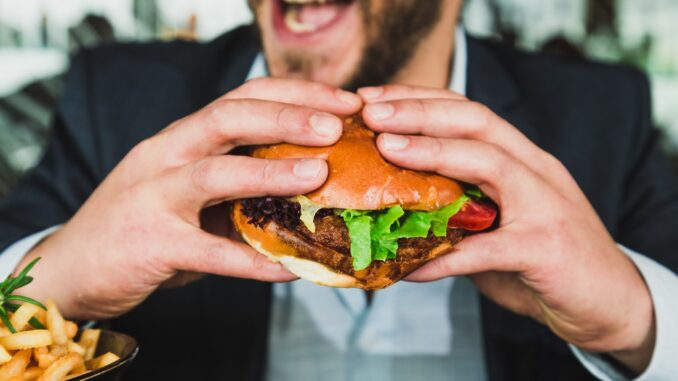
During the initial days of the lockdown, a lot of people found that being at home left them with a lot of time to concentrate on their mental and physical wellbeing.
However, almost seven months into the lockdown, even the most committed of fitness enthusiasts have found themselves sliding down the wellness slope. Months of forced inactivity coupled with stressors like never-ending work hours, the burden of household chores and, taking care of the family and kids, has led to a dip in fitness levels and poor eating habits.
Studies say, stress often leads to comfort eating and is more prevalent among those who are unable to, or are less able to, express their feelings.
The lockdown has led to an increase in the consumption of unhealthy food and take-away orders in children, revealed a study by the Department of Counselling, School and Educational Psychology, University at Buffalo.

“Compared to data recorded last year, the children ate an additional meal a day; slept an extra half hour a day; added nearly five hours a day in front of the phone, computer and television screens; and dramatically increased their consumption of red meat, sugary drinks, and junk foods,” it said.
“I have people coming to me every day who say that they have put on 18-20 pounds during the lockdown,” said Dr. Jasleen Kaur, a Delhi-based nutritionist. “Pre-lockdown, we had a daily routine. We all had a fixed time of eating or going to the office or coming back. Now, when we sit idle, all we think about is what to eat. We find comfort in food.”
The spike in the number of such cases has been so high that a new term, “Covibesity” (rising obesity during the pandemic), has been coined by the National Center for Biotechnology Information. It is being regarded as the new pandemic.

COVID-19 has had collateral effects, which extend beyond just the direct viral infection. People from all age groups, who were already struggling with obesity, were isolated. This fueled inactivity and a lack of motivation. Apart from attending online classes or working, youngsters are glued to the screen playing games or watching web content.
The food industry has noticed the increase in screen time and intensified online advertisement, focusing on children and young adults, noted a study by Nielsen.
Dr. Naini Setalvad, a Mumbai-based nutritionist, blamed the lockdown for the increased obesity among individuals.
“Tedious online schooling, increased screen time, lack of movement and eating with distractions like the TV, mobile and computer, causes more food consumption,” she said. The ability to order food at any time of the day is also worrisome. “Convenience foods are increasing as the house and office workload is also high.”
Narendra Modi, the Indian Prime Minister, recently announced that September 2020 would be observed as “nutrition month” to raise awareness about the importance of proper nutrition. Diseases such as obesity and cardiovascular ailments and related illnesses are caused by malnourishment or lack of proper nourishment. In India, malnourishment and obesity are also linked with cultural, economic, and caste factors.
“India’s eating habits are strongly influenced by casteist notions of purity/pollution, clean/unclean. These are the factors that govern eating practices,” said Dr. Sylvia Karpagam, a public health doctor and researcher. “While the rich will tend to imitate the West and eat highly processed ‘junk’ food, the poor will be forced (by bad policies) to eat just cereals and millets, without additional good quality protein and sources of vitamins and minerals. So, obesity is bound to increase.”
Karpagam believes the lockdown aggravated such habits because the middle class, sitting at home, has been snacking on lots of sugary and oily foods with carbohydrate-rich cereals/potatoes as the base.
“Even the vegetarians need to plan their diets by cutting down on sugars, cheap vegetable oils, cereals, and millets,” said Karpagam. “They will have to consume more dairy products like cottage cheese, yogurt and milk, and more vegetables.”
Caste and culture have influenced the eating habits in India. Meat and eggs, which are the best sources of protein, are looked down upon.
“The caste system has played havoc on people’s eating choices, criminalizing not just animal foods but those who consume such foods as well,” said Karpagam.
“There is enough evidence to show that good-quality protein is essential for growth and development. Most Indians do not get access to this. This is the major cause of stunting, under-nutrition and non-communicable diseases. Vegetarians consume animal foods such as dairy, but those in positions of power, tend to push cheap vegetarianism (mainly cereal and millets) on predominantly meat-eating communities. All these factors add up to creating barriers to good nutritious food. Unless these basic issues are addressed, and the government at least starts providing eggs to children and other vulnerable people, nutrition is only going to deteriorate.”
(Edited by Uttaran Das Gupta and Gaurab Dasgupta.)
The post ‘Covibesity’ May Be the Next Epidemic We Need to Tackle appeared first on Zenger News.



